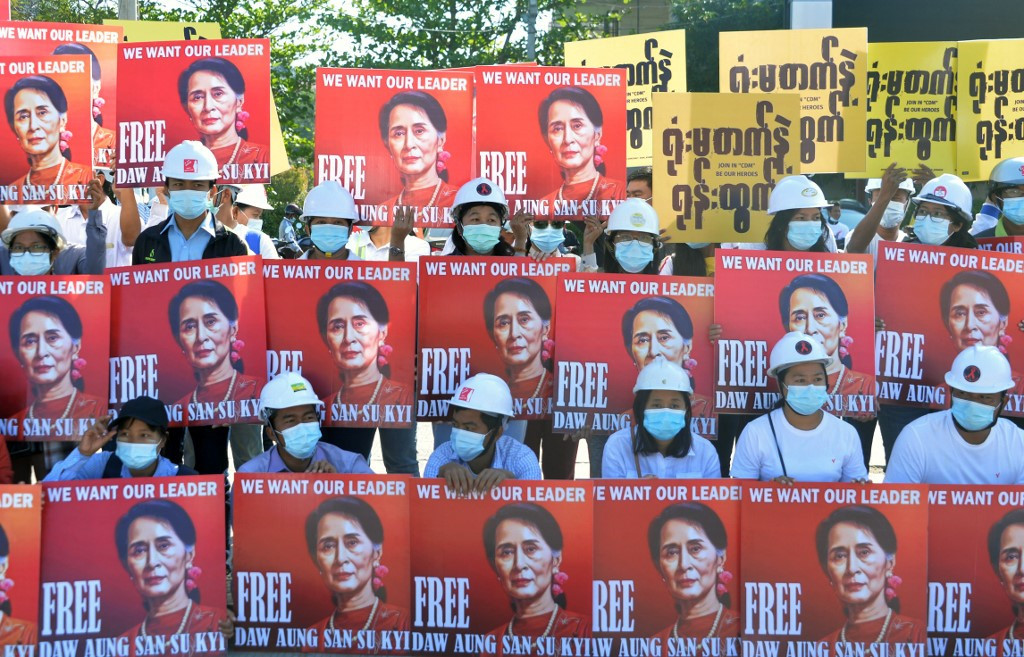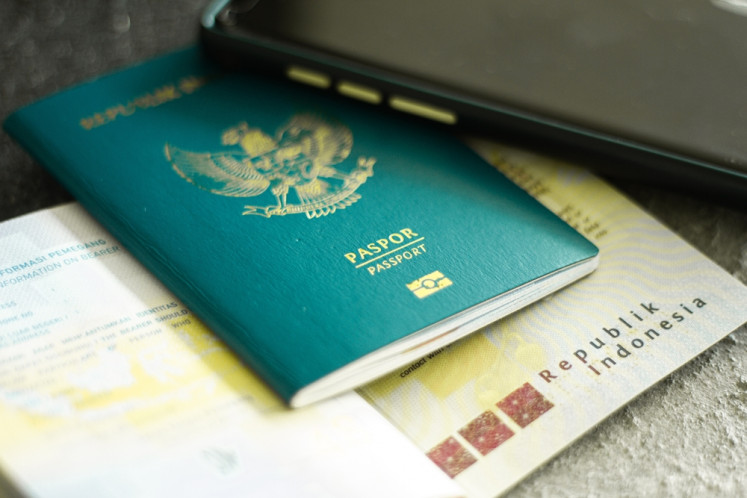Myanmar crisis highlights need to revamp ASEAN Charter
Existing ASEAN institutions are not equipped to deal with short-term domestic crises with regional implications involving member states like Myanmar.
Change Size

A
s Myanmar security forces continue to use violence against protesters challenging the Feb. 1 coup, what can ASEAN do? The answer may simply be “not much”.
After all, ASEAN operates on consensus-based decision-making. So, any ASEAN-wide effort to end the crisis in Myanmar must account for the views of Myanmar’s representatives—whose own legitimacy remain in doubt.
Indonesia made valiant diplomatic efforts nonetheless to engage all the salient parties—both within and outside of Myanmar—to end the month-long crisis that threatens ASEAN centrality and regional security. Unfortunately, only Singapore, Malaysia and Brunei appear to be fully on board with the goal of getting Myanmar’s military regime to open up, release prisoners and begin dialogue, while ensuring the people of Myanmar that their aspirations will not be ignored.
It remains unclear to what extent the current ASEAN chair, Brunei, and the secretary-general can and will play a role in the ongoing efforts. It also remains unclear whether ASEAN members are willing to invoke the so-called ASEAN Troika—the foreign ministers of the previous, current, and next ASEAN chair—or the ASEAN High Council in engaging Myanmar.
The lack of common views among ASEAN members are to be expected given the political-security diversity of the region. But the lack of an ASEAN institutional mechanism to address a common regional crisis should not be. Indeed, one of the strategic rationales behind the ASEAN Charter and the ASEAN Political Security Community project was to ensure ASEAN-wide institutions can help member states address pressing challenges.
But the challenges we now face in Myanmar highlight the need to revamp the ASEAN Charter.
For one thing, since the charter came into effect over a decade ago, there has not been a single review of the document, even though Article 50 allows for such a review five years after it came into force.
Last year, Vietnam as ASEAN chair initiated the process to review how the charter has been implemented. But the charter provisions themselves appear left unscathed.
For another, existing ASEAN institutions are not equipped to deal with short-term domestic crises with regional implications involving member states like Myanmar.
First, the ASEAN Summit remains the ultimate decision-maker based on consensus, even if under the charter, the ASEAN chair or the secretary-general can serve as primary agents to deal with crisis situations. Not only is consensus impossible without Myanmar’s ascent, relying on “standard” ASEAN procedures is insufficient as the summit is only scheduled to meet in April.
Without a clear mandate or a revised charter, the secretary-general is ambivalent about its role, especially since there is no clear distinction between “dispute settlement” and “crisis management” within the charter.
Meanwhile, the ASEAN chair’s willingness and capacity to play an active role is also highly dependent on the diplomatic heft and political will of its holder.
ASEAN has also been traditionally set up as a “legitimacy-enhancing” mechanism for both the region and individual members. Waiting for members like Thailand — perhaps with the best ties to the Tatmadaw — to potentially undermine its own legitimacy by condemning Myanmar’s military coup, is like waiting for Godot.
As such, we should start with the premise that consensus does not always mean unanimity. The charter should be revised to allow for the possibility for the “ASEAN minus X” principle to apply to the broader decision-making process beyond the economic realm. After all, if members already agree on the principles governing ASEAN — as codified in the charter — it is redundant to always expect consensus on every single policy challenge.
Second, the ASEAN Charter should be reviewed to empower the Office of the Secretary-General and to professionalize his or her deputies. There should also be a mandate for the secretary-general to be the “first line of defense” in crisis management and dispute settlement. The secretary-general should have the legal and institutional capability to play an active role in addressing regional challenges, from the South China Sea to humanitarian crises and disaster relief.
The secretary-general should further report to the ASEAN Foreign Ministers Meeting and coordinate daily with the Committee of Permanent Representatives (CPR), rather than the ASEAN Summit, to provide strategic agility and responsiveness. The charter should also be revised to allow the secretary-general and all of his or her deputies to be selected based on professional merit and open competition, rather than political considerations.
Third, to support the secretary-general, the ASEAN Secretariat (ASEC) should be further boosted and professionalized. By 2030, the number of ASEC staff must increase to more than 1,600 people with a budget of about US$220 million (more than 10 times the current budget). Aside from de-politicization, ASEC career paths should also be overhauled. The current high rate of turnover among staff can be counterproductive to institutional memory and continuity, especially given the long-term visions proposed by various ASEAN documents.
The Myanmar crisis requires both short and long-term solutions. The short-term ones may revolve around some form of ASEAN-centered efforts spearheaded by Indonesia but backed by extra-regional powers with significant leverage in Myanmar (including Japan, India, China, the United States and Russia).
Such initiative, however, is not sustainable without a long-term framework to strengthen ASEAN’s crisis management and dispute resolution mechanisms based on revamping the ASEAN Charter and empowering the secretary-general, and ASEC.
***
The writers are senior researchers at the Centre for Strategic and International Studies (CSIS), Jakarta.









